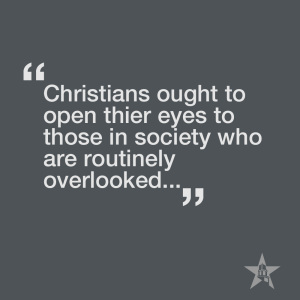Female and male. Woman and man. American society is ruled by an overwhelming tendency to divide the human population into two distinct, polarized categories based on sex and gender. Gendered bathrooms, changing rooms, academia, government identification, healthcare and even the English language are reflective of a culture that recognizes two distinct genders. There are those, however, who do not fit into this binary structure of gender—individuals whose bodies and experiences fall outside of the male-female gender binary. This third gender is in need of recognition.
Achieving an inclusive understanding of gender requires challenging important assumptions that American society tends to make. To begin with, one’s gender is not equivalent to one’s sex. While it may be determined genetically whether a human’s biological sex is male or female, though intersex people are also born, gender is fluid. Gender is a culturally and socially constructed aspect of one’s personal identity that does not necessarily go hand-in-hand with the genitals one is born with.
Different cultures and individuals understand third gender differently. A third gender may represent an intermediate state between man and woman, a state of being both, the state of being neither, the ability to cross or swap genders, or another category altogether independent of man and woman. In the United States, those whose personal identities exist outside of the male-female gender binary may identify as queer, third gender, gender neutral, agender, genderless, non-gender, two-spirit—terms that are often used interchangeably or defined differently by each individual. Still, all terms refer generally to the same experience of gender as one who does not fit into the cultural construct of “man” or “woman”.
 Christians, as those who are called to model the life of Jesus, have a responsibility to be at the forefront of the response to the oppressed and marginalized. In that way, Christians ought to open their eyes to those in society who are routinely overlooked as they are forced to associate with a gender with which they do not identify.
Christians, as those who are called to model the life of Jesus, have a responsibility to be at the forefront of the response to the oppressed and marginalized. In that way, Christians ought to open their eyes to those in society who are routinely overlooked as they are forced to associate with a gender with which they do not identify.
The story of Philip encountering the Ethiopian eunuch in Acts 8:26-40, as interpreted by Reta Halteman Finger of Sojourners Magazine, provides clarity to this Christian calling. Castrated before puberty, appearing beardless with a higher voice, and having been trained to take sensitive positions not typically entrusted to males, the eunuch is never referred to as a man. Eunuchs were, thus, understood as a third gender, inhabiting a distinct space between women and men within their societies. While the position held by the Ethiopian eunuch provided him with some wealth and privilege due to his relationship with his Queen, the eunuch was routinely humiliated and rejected by the religious establishment in Jerusalem. His early castration inhibited him from societal status as a “proper male” as he lacked the ability to procreate and become circumcised—both necessities to carry on the covenant line. For that reason, despite his being a God-fearing individual, the eunuch’s gender status prevented him from worshiping in the temple in Jerusalem and having a place in the religious community.
 After having known a deep rejection and marginalization by the religious community, the eunuch listens carefully to Philip’s words. Philip explains Jesus’ life, crucifixion, and resurrection as the fulfillment of the “humiliated servant” of God described in Isaiah 53. Reading further in Isaiah to chapter 56, it is declared: “Do not let the eunuch say, ‘I am just a dry tree.’ For thus says the Lord, ‘to the eunuchs who … hold fast my covenant, I will give, in my house and within my walls, a monument and a name better than sons and daughters. I will give them an everlasting name that shall not be cut off.’” When the two reach a stream, then, the eunuch says, “Look, here is water! What is to prevent me from being baptized?” The answer? Nothing.
After having known a deep rejection and marginalization by the religious community, the eunuch listens carefully to Philip’s words. Philip explains Jesus’ life, crucifixion, and resurrection as the fulfillment of the “humiliated servant” of God described in Isaiah 53. Reading further in Isaiah to chapter 56, it is declared: “Do not let the eunuch say, ‘I am just a dry tree.’ For thus says the Lord, ‘to the eunuchs who … hold fast my covenant, I will give, in my house and within my walls, a monument and a name better than sons and daughters. I will give them an everlasting name that shall not be cut off.’” When the two reach a stream, then, the eunuch says, “Look, here is water! What is to prevent me from being baptized?” The answer? Nothing.
Certainly, this particular story in Acts may be interpreted to communicate other important ideas. Modern Western Christians may tend to pay little attention to the condition of the eunuch, assuming that they have never met a eunuch. Understanding the eunuch’s position in society as that of a third gender, however, has significant implications on how one ought to respond to the marginalized, queer population.
Let’s strive to understand all people as they understand themselves, educating ourselves about, and building open relationship with, the marginalized. Let’s take steps that will enable us to refrain from forcing the human population into a two-gender system that is neither innate nor universal. Let’s embrace an inclusive theology, a theology that seeks to understand and love all human beings as they are.
